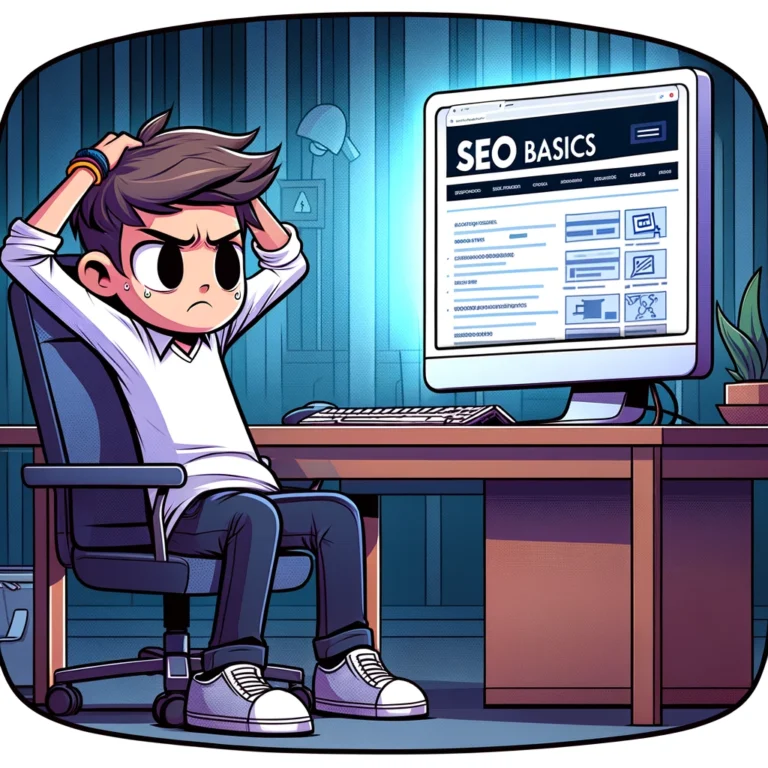Off-page SEO is crucial for anyone looking to enhance their website’s visibility and search engine ranking. Unlike on-page SEO, which involves optimizing elements on your website, off-page SEO focuses on increasing your site’s authority and reputation through external means. This guide will explore the various components of off-page SEO and explain their importance in achieving better search results.
1. Backlinks
Backlinks, or inbound links, are arguably the most critical factor in off-page SEO. These are links from other websites that point to your pages. Search engines like Google see backlinks as votes of confidence. The more high-quality links you have from reputable sites, the higher your website can rank.
Importance of Quality Over Quantity
Not all backlinks are created equal. Links from authoritative, well-respected websites are more beneficial than those from lesser-known or potentially spammy sites. Thus, focus on building relationships with industry leaders and creating content they would consider linking to.
2. Social Media Marketing
While social media signals don’t directly impact search engine rankings, they affect your SEO efforts. Social media platforms are powerful tools to amplify the reach of your content and attract more visitors to your website.
Boosting Visibility
Regular posting on social media can increase your content’s visibility and drive traffic. By engaging with your audience on platforms like Facebook, Twitter, and Instagram, you create more pathways back to your site, which can indirectly boost your SEO by increasing organic traffic.
3. Brand Mentions
Google considers both linked and unlinked brand mentions in its search algorithm. The logic is that if your brand is being talked about, whether there’s a direct link or not, it must be of significance.
The Power of Recognition
Having your brand mentioned by influential figures or websites, even without a link, can reinforce its relevance and authority in your field. This can lead to increased searches for your brand and potentially more direct traffic to your site.
4. Guest Blogging
Guest blogging involves writing articles for other websites in your industry. It’s a win-win strategy: you gain exposure and backlinks, and the host site receives valuable content.
Strategic Collaboration
When choosing platforms for guest blogging, select sites that align with your audience and industry. This ensures the backlinks you gain are relevant and valued higher by search engines.
5. Influencer Partnerships
Collaborating with influencers can drive traffic and increase your site’s exposure. Influencers have dedicated followers whose actions they can directly influence, making this a potent off-page SEO tool.
Leveraging Influence
Working with influencers who are relevant to your niche can lead to quality backlinks, as their followers are more likely to be interested in your content. This relevance is crucial for boosting your site’s search engine standing.
6. Forums and Community Engagement
Participating in forums like Reddit, Quora, and industry-specific boards can help establish your expertise and direct traffic back to your site.
Building Authority
By actively engaging in discussions and providing valuable insights, you build authority in your field. This can attract more direct traffic and improve your brand’s recognition and trustworthiness.
7. Reviews and Reputation Management
Online reviews are vital for local SEO and can impact your website’s trustworthiness. Positive reviews boost credibility, while managing negative reviews properly can show that your business values customer feedback.
The Importance of Customer Interaction
Actively encouraging satisfied customers to leave positive reviews and promptly addressing negative feedback shows that you value customer input, enhancing your reputation both online and off.
8. Content Marketing
Creating valuable, shareable content is at the heart of off-page SEO. Content that educates, entertains, or informs is more likely to be shared and linked to.
Diversifying Your Content
Consider various formats such as blogs, infographics, videos, and podcasts to engage different segments of your audience and maximize shareability.
Off-page SEO is a multifaceted effort that enhances your website’s visibility and authority through various external channels. By focusing on building high-quality backlinks, leveraging social media, engaging with online communities, and managing your online reputation wisely, you can significantly improve your SEO performance. Remember, a successful off-page SEO strategy involves consistent effort and genuine engagement with your audience and industry.

9. Local SEO
Local SEO is an essential aspect of off-page SEO, particularly for businesses with a physical location. It involves optimizing your online presence to attract more business from relevant local searches.
Importance of Local Listings
Ensure your business is listed in online local business directories like Google My Business, Yelp, and others relevant to your location and industry. Accurate and consistent information across these platforms, including your business name, address, and phone number, can enhance your visibility in local search results.
10. Video Marketing
Video content has become increasingly popular due to its high engagement rates. Platforms like YouTube, Vimeo, and social media channels provide opportunities to create and share video content that can drive traffic back to your website.
Utilizing Video for SEO
Creating informative and engaging videos related to your niche can help establish authority and provide additional content for users to link back to. Moreover, properly optimized video content (with the right tags, descriptions, and titles) can appear directly in search engine results, providing another avenue to capture traffic.
11. Podcasts
Podcasting is another content medium that has seen a surge in popularity. Like video, podcasts can be a way to reach an audience interested in your industry or topic area, fostering a deeper connection.
Enhancing Engagement Through Podcasting
By including guest speakers from your industry and discussing relevant topics, you can enhance your authority and create additional off-page SEO opportunities. Encouraging listeners to visit your website for more information or resources can also drive direct traffic.
12. Press Releases
Using press releases can be an effective strategy to generate buzz and potential backlinks from media outlets and other sources. This approach is particularly useful when launching a new product or service, or for sharing important company news.
Strategic News Sharing
Craft press releases that provide real value and newsworthy content to ensure they are picked up by publications. This not only increases your site’s visibility but can also lead to high-quality backlinks from credible news sources.
13. Scholarship Link Building
Scholarship link building is a niche strategy that involves creating a scholarship and promoting it through universities and educational institutions. This method can generate high-quality backlinks from .edu sites, which are highly regarded by search engines.
Ethical Considerations
While effective, ensure this strategy aligns with your company’s ethical guidelines and marketing goals. It’s important to genuinely contribute to educational efforts rather than just using them as a link-building tactic.
14. Competitor Analysis
Understanding your competitors’ off-page SEO strategies can provide valuable insights. Analyzing where their backlinks are coming from can help you identify potential link-building opportunities for your own site.
Learning from the Competition
Use tools like Ahrefs, SEMrush, or Moz to analyze competitor backlinks. Identify gaps in their strategies or untapped sources that you could potentially leverage for your advantage.
Conclusion
Effective off-page SEO is a dynamic and integral part of a comprehensive SEO strategy. By leveraging various external resources and strategies—from backlinking and social media marketing to engaging with local listings and producing diverse content forms—you enhance not only your site’s visibility and search engine ranking but also its credibility and authority. Remember, successful SEO requires ongoing effort and adaptation to evolving trends and search engine algorithms.
References
- Google Search Central Blog
- Moz Blog
- Search Engine Journal
- HubSpot Blog
With this guide, beginners and seasoned marketers alike can grasp the broad scope of off-page SEO factors and implement them to boost their online presence effectively.



